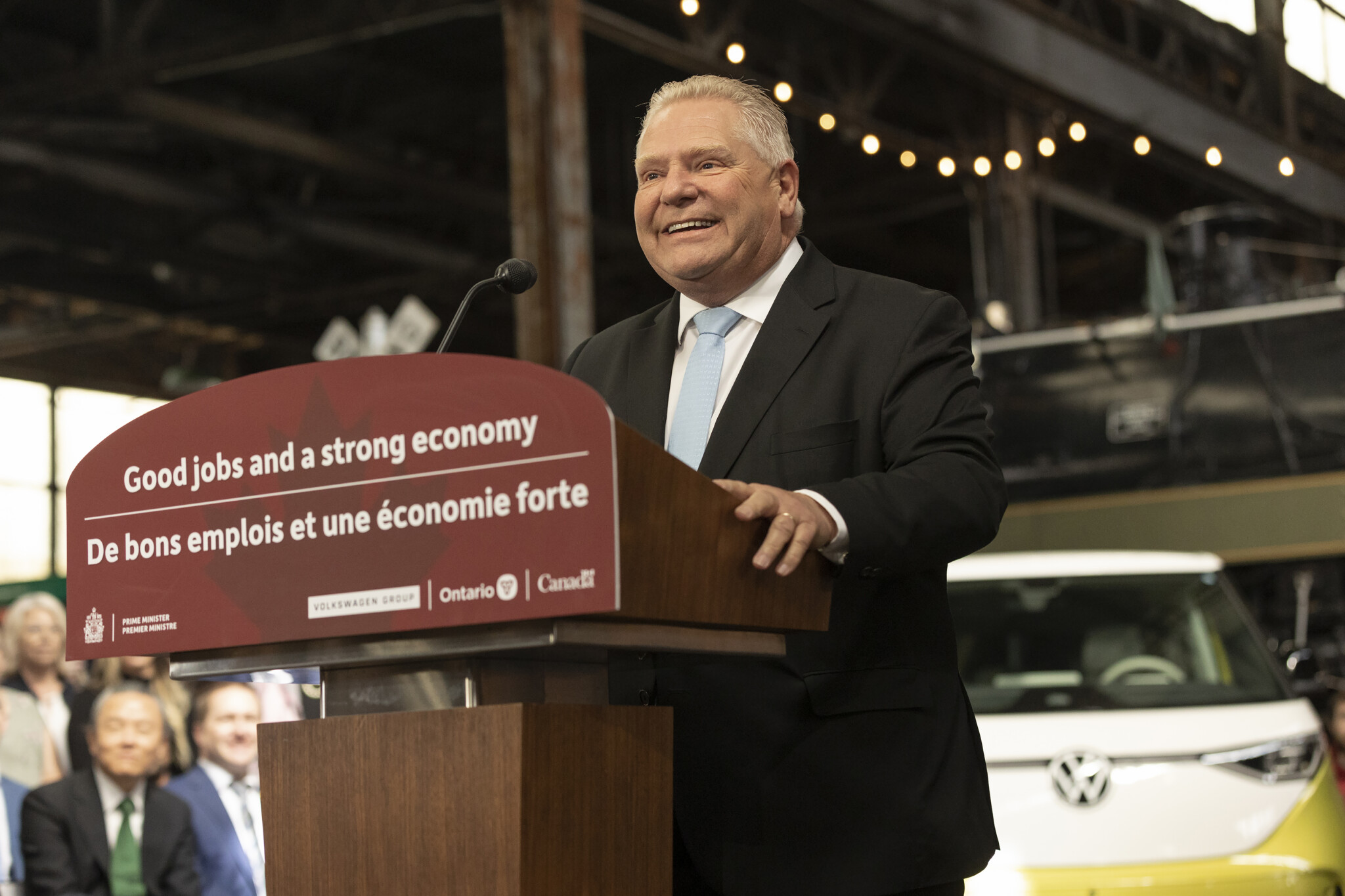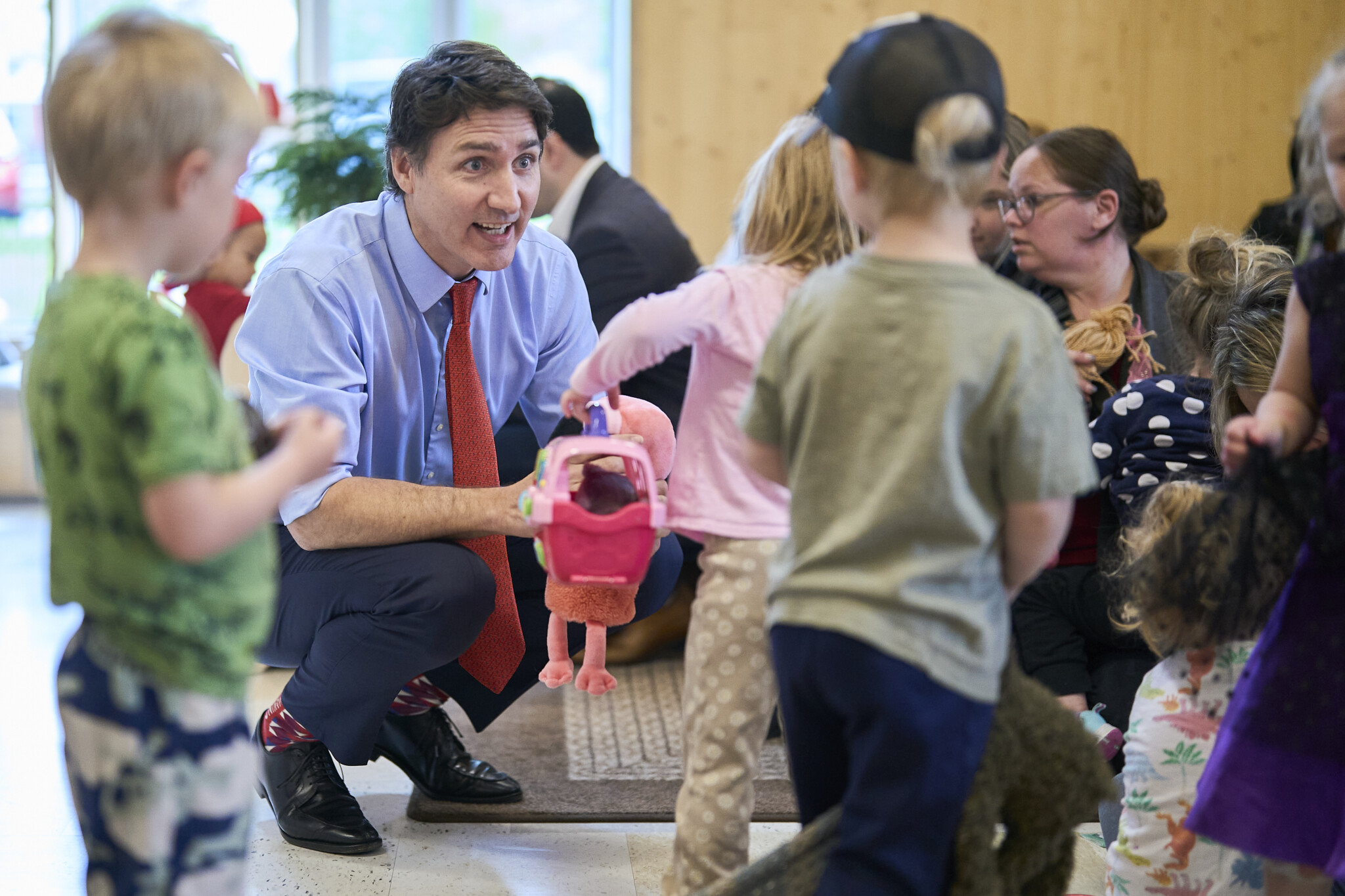My former boss, think-tank entrepreneur Brian Lee Crowley, used to say that ideas are the most powerful thing in the world. If you can implant an idea in people’s minds, you can shape the unfolding of history.
Today we’re living through a period of intellectual tumult—a moment when history seems up for grabs.
There’s a sense that post-Cold War thinking—what Francis Fukuyama famously called the “end of history”—has lost its explanatory power in the years since the global financial crisis, the rise of populism, and the renewal of great power competition.
In this era of heterodoxy, the competition for the intellectual centre of gravity is fierce. New ideas and voices on both the Left and the Right are fighting to position themselves as the basis for a new political economy orthodoxy.
One such voice is Canadian progressive economist Armine Yalnizyan who has had a tremendous influence over our public policy debates during the Trudeau era. Last month, she won the 2023 Galbraith Prize in Economics from the Progressive Economics Forum and delivered the keynote lecture at the annual meeting of the Canadian Economics Association.
Her speech must be understood as a serious yet flawed critique of neoliberalism and the positioning of an alternative paradigm in the form of what Yalnizyan broadly refers to as “the care economy.”
Proponents of free markets and limited government must reckon with her arguments. Even if one (rightly) disagrees with her perspective, it’s clearly one that has found a lot of resonance within the Trudeau government and is bound to remain influential in progressive circles. It represents, in this sense, a “steelmanned” (or “steelwomaned”) version of the Left’s prevailing intellectual alternative to neoliberalism.
My off-and-on relationship with neoliberalism
Neoliberalism has become a somewhat elastic term—including among its critics—but a neutral definition might be that it reflects the post-Keynesian economic paradigm which places an emphasis on free markets, including lower taxes, globalization and free trade, and a less active role for the state in the economy.
As neoliberalism has come under fire in recent years, I’ve been part of these debates about its future. I first started to reckon with such questions in the aftermath of Donald Trump’s shocking election in 2016 and what it might tell us about creative destruction, the “forgotten people and places,” the urban-rural divide, middle-class dislocation, and the return of “geoeconomics.”
I was more open than I had previously been to significant course corrections to my own assumptions about politics and policy. I even flirted with industrial policy, place-based policy, national security-driven protectionism, and other departures from free markets and limited government. Ultimately though I’ve returned to my previous support for neoliberal ideas with a couple of caveats, including the need for government policy to better account for the unique characteristics of intangible capital and the rise of China.

Ontario Premier Doug Ford makes an announcement on a Volkswagen electric vehicle battery plant in St. Thomas, Ont., April 21, 2023. Tara Walton/The Canadian Press.
I’ve reached this conclusion for two main reasons. The first is that it’s increasingly clear that our principal economic and social challenge is supply-driven economic stagnation for which the best solutions can still primarily be found in neoliberal orthodoxy.
Policymakers should be focused on boosting private investment and catalysing a supply-side revolution in energy, housing, health care, and so on. This calls for a conventional market-oriented policy response, including tax reductions on businesses and investors, deregulation, privatization, pro-competition reform, and a generally less intrusive state. We essentially need an updated version of Reaganism or Thatcherism to jolt us out of our current economic malaise.
The second is the magnitude of government failure over the past several years has reminded me of the inherent limits of state action. As I’ve previously written, in hindsight some of my thinking and writing overestimated the capacity of government to engineer particular outcomes in industrial development or science and technology. Even as the size of the federal public service has massively grown in recent years, the government has still proven itself to be challenged to merely deliver on its core functions like passport renewals or immigration processing. The notion that it could micromanage the end of the internal combustion engine or other ambitious progressive aims without significant distortions, inefficiencies, and waste is completely implausible.
A string of major government failures, including the collapse of our single-payer health-care system during the pandemic or the ArriveCan scandal or the unprecedented corporate subsidies for the electric vehicle industry, has set me straight. They’re a reminder that limited government isn’t just an ideological slogan. It reflects a realist understanding of the proper role and scope of government.
The limits of the care economy model
Which brings me back to Yalnizyan’s speech. I should say that I know and like her. She’s smart, interesting, and kind. Her case that care services—specifically long-term care—will demand a greater share of our society’s total resources is self-evidently true. She also raises important points about the working conditions and quality of services within this growing part of our economy. But Yalnizyan’s critique of neoliberalism and her case for the care economy—particularly a publicly-run one—as a new economic paradigm fails to grapple with the two points above.
The care economy (as defined by childcare, health care, and long-term care) may produce social value and no doubt has economic effects, but the notion that it “may become the biggest driver of our future economic growth” ought to be interpreted as a warning rather than a desirable outcome. It says far more about the underperformance of Canada’s economy than it does about the growth potential of short-term consumption spending on care services.

Prime Minister Justin Trudeau speaks with kids at the Stationview YMCA Childcare Centre in St. Thomas, Ont., Monday, May 13, 2024. Geoff Robins/The Canadian Press.
The problem here is that Yalnizyan has the causality backwards: care services aren’t the foundation of economic growth; economic growth is the foundation of care services. We can only afford to provide high-quality care services if the economy is throwing off the resources to pay for them. It’s not a coincidence for instance that these services tend to be better funded in high-income countries.
There’s a good case in fact that if one preferences higher spending on care services, then he or she ought to support growth-enhancing policies. And that doesn’t even account for the strong relationship between higher rates of economic growth and innovation and the potential for health-care innovations to address the supply and quality issues that Yalnizyan rightly raises.
The other main problem with her speech is that she doesn’t account for the obvious challenges of state capacity or limits of state action. It’s underpinned by a well-intentioned but false understanding of government intervention. The real trade-off isn’t between “plunder capitalism” and a perfectly efficient state. It’s between the self-correcting mechanism of markets versus the inherent inefficiencies of state mandates or monopolies.
Yalnizyan’s argument that “the care economy is too important…to surrender it to market forces” is an example of this type of wrong-headed thinking. There are plenty of important functions in our society that are subjected to market forces. There are also ones that are sheltered from them and perform poorly. No one for instance would dispute that health care is important but it’s hard to argue in the face of a government-induced wait-time crisis that it’s producing good outcomes. The point is that judgments about whether markets or government should be responsible for allocating resources or providing services in a particular sector should be based on evidence rather than her philosophical preferences.
The whole discussion reminds me somewhat of Noble Prize-winning economist George Stigler’s famous line: “We may tell the society to jump out of the market frying pan, but we have no basis for predicting whether it will land in the fire or a luxurious bed.” The only adjustment that I’d make to his metaphor is that recent evidence suggests that landing in the fire is a strong bet.
It shouldn’t be lost on readers that the areas that Yalnizyan targets—childcare, health care, and long-term care—face persistent supply shortages unlike most of the rest of the economy. She would presumably attribute them to a market failure. But given the extensive role of the state in these areas (including funding, regulation, and direct delivery), there’s a strong case that the real problem is government itself.
An underlying problem in Yalnizyan’s analysis may be in her selection of historical antecedents. Her remarks were set up as a dialogue between John Kenneth Galbraith who favoured the mixed economy model and Stigler’s University of Chicago colleague, Milton Friedman, who was a champion of free markets. There’s a good case though that she needs to reflect a third voice in the conversation: James Buchanan and the public choice economists who were generally less committed to freedom in and of itself than Friedman but had a much clearer eye about the limits of government than Galbraith.
Any calls for bigger government that don’t reckon with public choice dynamics are invariably setting themselves up for failure. One might have quarrels with market outcomes but that’s a necessary yet insufficient condition for government intervention. Buchanan and others powerfully showed that the real question is whether, in the face of the invariable distortions and inefficiencies inherent to state action, it will actually produce superior outcomes. The answer is often no.
Yalnizyan’s speech is still highly worth reading. It provides a clear and well-reasoned case for progressive economics at a time of intellectual churn and debate. But as a serious alternative to neoliberalism, its failure to put forward a credible vision for economic growth or grapple with the clear limits of government itself ultimately leaves it better suited for the intellectual fire pit than a luxurious bed.









